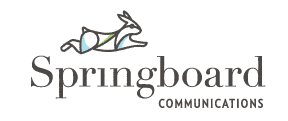The Stakeholder Feedback You’re Not Getting
What clients, donors and board members wish they could tell you — and how to get them to open up
If you’re reading this post, you may be pre-dispositioned to asking for and receiving feedback. You may see feedback as a gift, one that helps us grow and continue to become the best versions of ourselves. And if that’s the case, you may also have realized that most people are on the “scented candle from a colleague” level when it comes to giving that gift. Many of us 1) give no feedback at all, 2) tell the recipient what we believe he or she wants to hear or 3) give feedback that’s unbalanced — focused only on strengths, or harshly criticizing what could be more helpfully presented as opportunities for growth.
As a society, and as a sector, we suck at giving feedback.
And that’s mostly because people are polite, and kind, and don’t want to hurt anyone’s feelings — and that’s especially true in education. But it also means that those who know our work best — board members, donors, team members, clients, families — may be inadvertently sitting on heaps of insights that can help propel our work forward. Especially when it comes to building awareness of and support for who we are and what we do.
If brand is synonymous with reputation, it’s critical to listen to the word on the street.
As we know, brand is so much more than a logo. It’s a holistic representation of how we’re perceived — a collection of all of the thoughts, feelings and experiences stakeholders associate with your organization. That means that while our brand is about what we put out into the world, it’s equally about how what we put out there is received. I may think this missive that you’re reading is brand strategy gold, but what matters is what you think. What did you find valuable? Where could I have done better? (Email me; I really want to know!)
Feedback is so important, but stakeholders are mostly politely silent. Here’s how to get at those valuable insights.
It’s not that expensive, or time-consuming. But, ideally, you should hire a third-party researcher to do it for you. Here’s why: your stakeholders will share richer, more nuanced, more honest feedback with someone who’s not you. That will include valid, valuable insight into what your most important audiences believe makes you special and what you do best — enabling you to double down on what your stakeholders actually appreciate most about your work. And, they’ll open up about where they see opportunities for growth — very often, small issues that, when addressed, can translate into big wins.
My favorite example of what can be gained through stakeholder engagement or market research comes from our client PEBC. Our stakeholder-engagement process happened to dovetail with their strategic planning work, and involved 15 one-on-one interviews with clients, donors, board members and partners. Throughout every single conversation, the word “expert” came up over and over again.
The leaders of that organization are simultaneously the most amazing and most humble people you’ll ever meet. But that insight — the notion that donors invest in PEBC year after year, that wildly successful business leaders clamber to join the PEBC board, that partners are proud to be associated with PEBC, and that school districts across the country hire them because of their unmatched expertise — could no longer be brushed aside. And “expert” became a pillar of their brand strategy.
After our work together, here’s what PEBC’s chief operating officer had to say:
“We thought we knew what our clients valued, and we did know a lot. But the insights we discovered by investing in market research not only moved our brand forward, they changed our thinking about our entire organization.” Mindy Armbruster, COO, PEBC
In the end, feedback isn’t a gift — it’s an investment. But it’s faster, cheaper and easier than you may have thought.
And we can help you do it! Interviewing just nine of your most important stakeholder can produce invaluable insights, and can be done in a few weeks. Say hello today, and we’ll help you get past polite to productive in no time.

